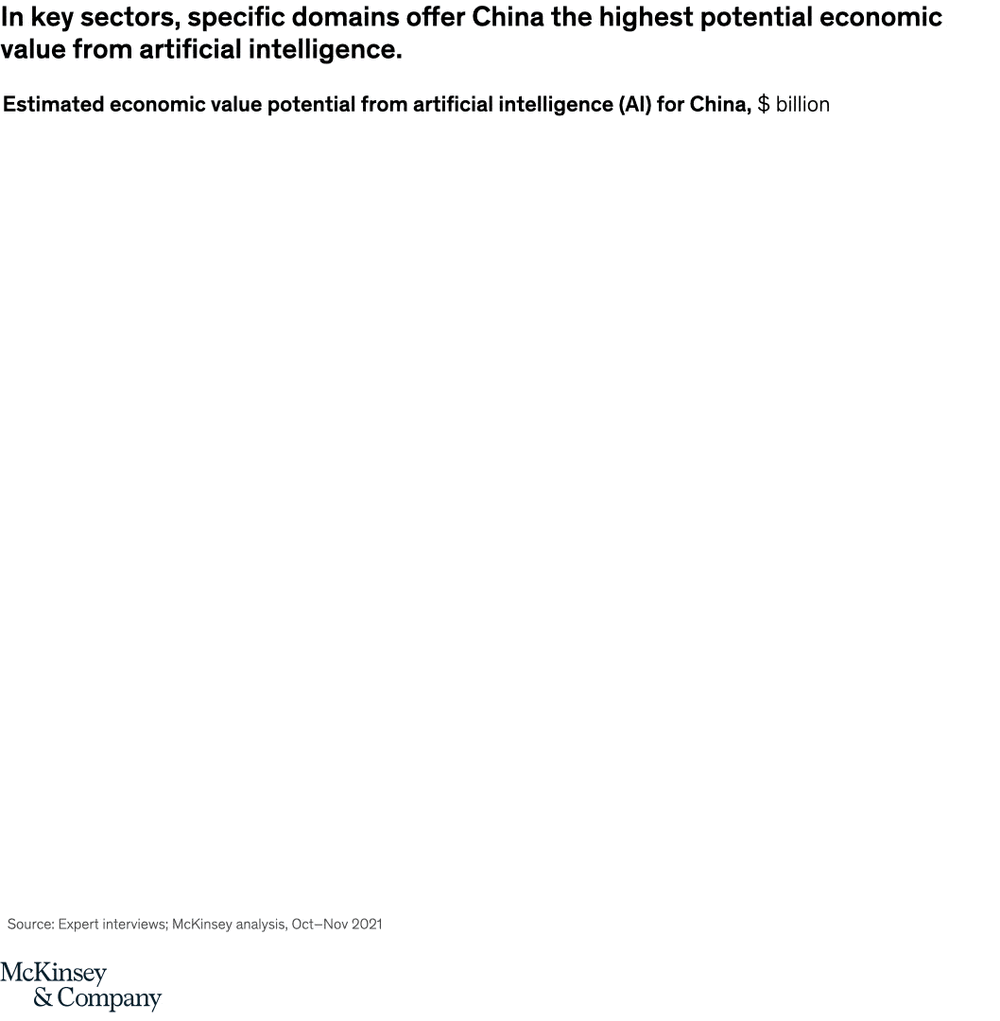- By 2030, China aims to achieve global leadership in AI, utilising its resources and initiatives to propel technological and economic progress.
- Despite challenges such as US export restrictions, China's commitment to AI is evident through a US$15 billion investment and strategic policy focus aimed at fostering AI development and nurturing talent.
- China's AI market is experiencing rapid growth, characterised by notable research and innovation in machine learning and natural language processing, offering extensive investment prospects.
China’s emergence in the global AI sector is marked by rapid advancement and bold aspirations. Aiming to be a global frontrunner in Artificial Intelligence by 2030, China is capitalising on its extensive resources and strategic initiatives to achieve significant progress in AI. This pivotal move is instrumental in enhancing China’s technological might and driving its economic development, thereby establishing it as a formidable contender in the international AI sphere [1].
Historical development of AI in China
In the historical development of AI in China, it’s significant that the nation plans to invest US$15 billion in AI projects this year, reflecting a near 50% increase in two years. This investment underscores China’s swift and ambitious AI expansion. The 14th Five-Year Plan marks a pivotal moment, targeting the acceleration of AI with policies encouraging innovation and aiming to cultivate over 500,000 new AI talents by 2025. Additionally, China’s strategic data collection through extensive surveillance bolsters AI learning, propelling forward its development. Despite hurdles like US export curbs on advanced chips, China’s AI trajectory is upward, steered by governmental influence. The emphasis on education, with an increase in AI-related courses and professionals, further solidifies China’s commitment to leading in AI globally [2].

Current state of the AI market and international comparisons
China’s AI market is flourishing, with McKinsey projecting a US$600 billion potential in the forthcoming decade. China is advancing in AI research, notably outpacing global counterparts in research output from universities and technology conglomerates. By 2019, China has matched the US in the top 5% of AI publications. It increased its presence at major AI conferences from 13% to 31% between 2010 and 2019, showcasing its rapid advancement in AI research globally [3-4]. This commitment to AI research positions China as a leader in technological innovation despite stiff competition from the United States. The focus on AI implementation, particularly through extensive data collection, sets China apart, although challenges like data privacy and export restrictions persist. Nonetheless, the research contributions from Chinese institutions and tech giants underscore China’s growing dominance in the AI field [5].
Innovations and leading areas in China's AI
China’s AI innovations are diverse, spanning various domains such as machine learning, neural networks and natural language processing. Significant advancements have been made by Chinese tech giants like Baidu, Alibaba and Tencent in developing AI platforms and applications. These include language models like Baidu’s ERNIE Bot, Alibaba’s AI chatbots and Tencent’s AI models, which find applications in Smart Cities, healthcare, education and e-commerce [6].

Investment opportunities and future prospects
China’s AI market presents vast investment opportunities, with over 1.57 million registered AI-related companies in 2023. This thriving ecosystem, highlighted by an active start-up scene and a substantial number of enterprises exploring large generative AI model products, underpins China’s leading role in AI research and application. The country’s push for technological supremacy, backed by government support and high adoption rates across various industries, offers a compelling case for investors. This rapid development underscores China’s position as a hub of cutting-edge innovation, making it an attractive landscape for investment in AI technology [6-7].

Conclusion
In conclusion, China’s foray into the AI domain stands as a solid testament to its dedication to emerge as a technological superpower on a global scale. Despite numerous challenges, the strides and plans have underscored a promising future for AI innovation within the nation. This period is thus pivotal for investment and collaborative ventures in China’s AI market, a movement poised to make significant contributions to worldwide technological progress and economic expansion.
References
- [1] & [12] CoinDeck: China Includes Digital Yuan in Cash Circulation Data for First Time
- [2] Deloitte: What is Digital Economy?
- [3] Santander: The Digital Economy: What it is and Why it’s the Future of Business
- [4] FeeDough: What Is Digital Economy? – Importance, Types, Examples
- [5], [6], [7] & [11] China Briefing: Understanding China’s Digital Economy: Policies, Opportunities, and Challenges
- [8] FitchRating: Chinese Digital Economy’s Industrial Penetration Set to Rise
- [9] The Diplomat: Will China’s Technology Be a Game-Changer in the Post-Pandemic Era?
- [10] Reuters: China’s Cabinet Says it Will Promote Transformation of Digital Economy
- [13] CGTN: Digital Economy Becomes New Growth Engine for China and Other G20 Members
- [14] Gulf Business: Saudi Arabia and China Strengthen Partnership in Digital Economy
- [15] South China Morning Post: China to Help Indonesia Build Digital Economy as E-commerce Sweeps Archipelago







